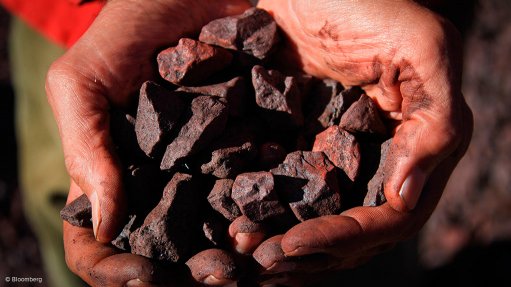
Photo by: Bloomberg
TORONTO (miningweekly.com) – The Quebec Court of Appeal has refused to hear a motion to dismiss a C$900-million class action lawsuit by two Innu First Nation communities against a subsidiary of Rio Tinto.
The Innu communities of Uashat Mak Mani-Utenam and Matimekush-Lac John asked the court last March for an injunction against Rio's Iron Ore Company of Canada (IOC) unit in Quebec and Labrador to stop all mining, as well as an estimated C$900-million in damages.
They alleged that more than a half-century of iron-ore mining had disrupted their traditional way of life.
IOC in September tried to have the case dismissed on the grounds that the aboriginal communities should be suing the government not the company.
"The highest court in Quebec has made clear that Rio Tinto's subsidiary IOC will have to answer in court for its violations of our constitutionally protected rights, [dating] back to the 1950s," Uashat Mak Mani-Utenam Chief Mike McKenzie said on Tuesday.
The First Nations complained that while they had been able to reach agreements for financial compensation with four other mining companies in the region, including ArcelorMittal, Rio Tinto had refused several attempts to reach a settlement, the latest attempt having been during the fall.
Rio, one of the world's largest mining companies, owns a 59% stake in IOC, Canada's largest iron-ore producer. Rio tried to sell IOC in 2013, but was not able to find a buyer.
IOC/Rio Tinto started operating its megaproject in the First Nation’s claimed territory in 1954, including 20 iron-ore mines in the Schefferville area (which were abandoned in 1982), nine iron-ore mines in the Labrador City area, a 578 km railway between Schefferville and Sept-Iles called the Quebec North Shore and Labrador Railway, or QNS&L, for the transportion of iron-ore to IOC’s port facilities in Sept-Îles and three hydroelectric dams on the territory – namely Menihek, Twin Falls (now Churchill Falls) and Sainte-Marguerite 2, which is still owned by IOC.
IOC had recently increased its output capacity from 18-million tonnes to 23-million tonnes of iron-ore concentrate and hoped to open a new mine in Labrador City called Wabush 3.
In recent years, Canada's aboriginal activists have stepped up demands for more control over mining and energy projects, and a greater share of benefits from resource development.